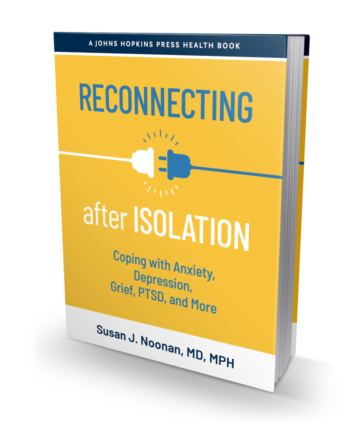I’m writing today about a type of mood disorder sometimes called a mixed state, or dysphoric mania. It’s a sub-category of mood disorders and therefore a biologically based medical condition. It’s something that I have personal experience with as a patient and provider. Dysphoric mania, also called agitated or mixed mania, is when you have a combination of depression and mania at the same time. It is having depression while at the same time being in a manic state, without the highs of mania or the euphoria. Symptoms can include being sad, depressed, irritable, with decreased interest and pleasure, physical slowing down or agitation, feelings of worthlessness and hopelessness, negative thoughts and cognitive distortions, recurrent thoughts of death and suicide, and then being more talkative with “pressured speech”, racing thoughts, increase in risky behaviors, and decreased need for sleep.
Triggers may include lack of or interruption in sleep and medications such as antidepressants in a person with bipolar disorder. A change in routine such as diet and other routines, use of alcohol or street drugs, and stressors, may contribute. Triggers may be unique to each person.
How to deal with the “storms” in your head when the two extremes collide? A person should seek medical attention as soon as possible if they experience or see someone experiencing dysphoric mania. Mixed state, or dysphoric mania, is very difficult to treat in the most experienced hands, but it is important to do so because it is also high risk. Hospitalization may be required, particularly if the person is suicidal. Treatment is variable and may include mood stabilizers and/or atypical anti-psychotics. Antidepressants typically make the situation worse. Other “out of the box” treatments may also be effective.
I was diagnosed years after I knew I had depression but shortly after receiving my first treatments for depression. At the time we did not know I was on the bipolar spectrum. I now manage it with medications and by following the basics of mental health, which includes: treating all physical conditions; taking all medications as prescribed, avoiding alcohol and street drugs, excess caffeine & tobacco; following sleep hygiene guidelines; following healthy diet & nutrition with Mediterranean Diet; getting daily physical exercise (aerobics, strength training, stretch, meditation); having a daily routine and structure; avoiding isolation; keeping up with friends/family/social contacts. At times I have used the inpatient hospital as needed.
Here’s what it feels like for me. When a mixed state happens, the world is all dark gray and murky, with no hope of it ever changing or improving, no hope for a life of any meaning to you. It physically feels as if you are moving through heavy molasses. Fatigue is huge and sleep never comes but it doesn’t matter, and I could be wide awake for 4-5 days straight. At night I would get energized in spite of fatigue and take on projects like rearranging the books on my bookcase or painting my basement walls different colors. Thoughts were always negative and apparently distorted, as I’m told. It felt like there’s a “storm” in my head, irritated by everyone and everything around me, and constantly agitated. I am told that I walk and move more slowly, and that my speech and thoughts are more rapid and racing, although at the time I do not have insight into this and do not realize it. I know that I don’t feel “familiar” to myself. Sometimes I just walk and pace continuously, sometimes just sit in one place for hours. There’s more, but it since it hasn’t happened for about 6 years now (because of effective treatment) the memories of it tend to fade.
One question people have is whether someone with bipolar disorder can do anything to prepare for this situation before and during the episode. That presumes that you can control it and do something about it to stop it, which during the episode you cannot. To begin, you need a very experienced psychiatrist, a psychopharmacologist, to manage your medications. You also need a clinical psychologist for therapy and support. You most definitely need to take your meds and not stop them when you’re feeling well, in between episodes. It really helps to follow the basics of mental health listed above – they make a huge difference. One thing you can do in advance is to create a treatment agreement with your providers that outlines your unique warning signs, triggers, who to contact if a change in your status is noticed and the steps to take when that happens. This allows for early intervention, which can make a difference.
Friends and families of those with bipolar disorder should be supportive and be aware of the person’s unique warning signs and triggers and whom to contact when changes occur. In addition, they should have a low threshold to call for assistance or 911 if suicidal warning signs appear.
Don’t give up no matter how bleak your situation may appear at the time! It is treatable and manageable.
Stay well!
This article was initially posted in View From the Mist on Psychology Today.

